-
 Bitcoin
Bitcoin $117600
0.25% -
 Ethereum
Ethereum $4424
0.10% -
 XRP
XRP $3.101
0.50% -
 Tether USDt
Tether USDt $1.001
-0.01% -
 BNB
BNB $836.2
1.26% -
 Solana
Solana $188.8
2.11% -
 USDC
USDC $1.000
0.01% -
 Dogecoin
Dogecoin $0.2301
0.57% -
 TRON
TRON $0.3485
-1.00% -
 Cardano
Cardano $0.9209
-1.34% -
 Hyperliquid
Hyperliquid $46.72
-1.19% -
 Chainlink
Chainlink $22.62
4.84% -
 Stellar
Stellar $0.4275
-0.38% -
 Sui
Sui $3.761
1.91% -
 Bitcoin Cash
Bitcoin Cash $586.7
-0.25% -
 Ethena USDe
Ethena USDe $1.001
0.01% -
 Hedera
Hedera $0.2510
2.06% -
 Avalanche
Avalanche $24.21
2.22% -
 Litecoin
Litecoin $119.7
1.07% -
 Toncoin
Toncoin $3.450
1.06% -
 UNUS SED LEO
UNUS SED LEO $9.411
-0.93% -
 Shiba Inu
Shiba Inu $0.00001298
1.20% -
 Uniswap
Uniswap $10.98
3.25% -
 Polkadot
Polkadot $3.961
2.16% -
 Dai
Dai $1.000
0.00% -
 Bitget Token
Bitget Token $4.642
0.95% -
 Cronos
Cronos $0.1514
0.57% -
 Ethena
Ethena $0.7290
3.78% -
 Monero
Monero $254.1
7.69% -
 Pepe
Pepe $0.00001102
2.47%
Where are BitMart contracts?
To access BitMart Contracts, users can navigate to the "Contracts" tab on the exchange's trading page after logging into their account and selecting the "Trade" option.
Dec 02, 2024 at 12:40 am
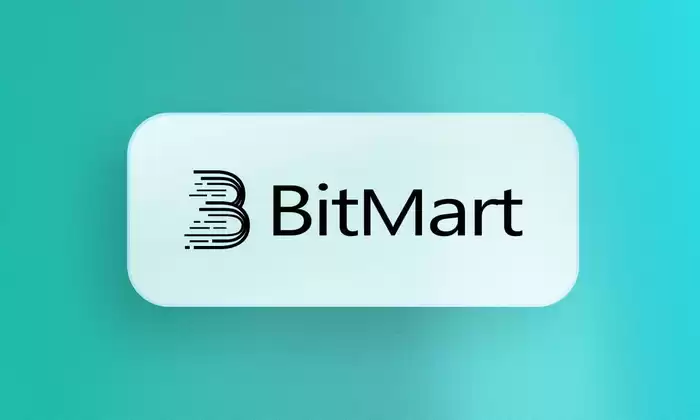
Where are BitMart Contracts?
Introduction
BitMart is a global cryptocurrency exchange specializing in digital asset trading, allowing users to buy, sell, and trade cryptocurrencies. It is known for its user-friendly platform and diverse selection of coins. However, when it comes to contracts, BitMart offers a specific feature called "BitMart Contracts" that enables users to engage in futures trading. In this article, we will explore the whereabouts of BitMart Contracts within the exchange's platform.
Accessing BitMart Contracts
To access BitMart Contracts, follow these steps:
- Log in to Your BitMart Account: Use your credentials to access your BitMart account.
- Navigate to the Trading Page: Go to the main menu and select "Trade."
- Choose Contracts Tab: In the trading section, select the "Contracts" tab located at the top.
- Select Your Preferred Contract: BitMart Contracts offers various futures contracts with different underlying assets, such as Bitcoin (BTC) and Ethereum (ETH). Choose the contract you wish to trade.
Understanding BitMart Contracts
BitMart Contracts are futures contracts that allow users to speculate on the future price movements of cryptocurrencies without owning the underlying assets directly. They are similar to traditional futures contracts, but executed through a cryptocurrency exchange. Here's an overview of the key aspects:
- Contract Specifications: Each BitMart Contract has its own specifications, including the underlying asset, contract size, leverage, and expiration date.
- Leverage: BitMart Contracts provide leveraged trading, enabling users to amplify their potential returns by using borrowed funds. However, leverage also magnifies potential losses.
- Long and Short Positions: In BitMart Contracts, traders can take both long and short positions. Long positions profit when the contract price rises, while short positions profit when the contract price falls.
- Margin and Funding: Traders must maintain a sufficient margin balance in their account to cover potential losses. The funding rate is a periodic payment received or paid by traders based on the price difference between the spot and futures markets.
Advantages and Disadvantages of BitMart Contracts
Like any trading instrument, BitMart Contracts come with their own set of advantages and disadvantages:
Advantages:
- Leveraged trading for increased profit potential
- Ability to profit from both rising and falling prices
- Access to a variety of underlying crypto assets
Disadvantages:
- Higher risk due to leverage
- Potential for significant losses
- Requires understanding of futures trading concepts
Conclusion
BitMart Contracts are located within the "Contracts" tab on the BitMart trading page. These futures contracts provide opportunities for leveraged trading and speculation on the future price movements of cryptocurrencies. While they offer potential benefits, it's crucial to understand the risks involved and approach futures trading with caution.
Disclaimer:info@kdj.com
The information provided is not trading advice. kdj.com does not assume any responsibility for any investments made based on the information provided in this article. Cryptocurrencies are highly volatile and it is highly recommended that you invest with caution after thorough research!
If you believe that the content used on this website infringes your copyright, please contact us immediately (info@kdj.com) and we will delete it promptly.
- Kazakhstan's Crypto Leap: Bitcoin ETF and Central Asia's Digital Finance Future
- 2025-08-13 12:45:19
- BlockDAG Presale Blazes Past $371M: Fundraising Frenzy Fuels Crypto Sensation
- 2025-08-13 13:05:21
- Meme Coins: Chasing the 2025 Surge – Which Will Moonshot?
- 2025-08-13 10:25:23
- Bitcoin's Wild Ride: Rally, Pullback, and What's Next
- 2025-08-13 10:25:23
- Bitcoin, Bitmax, and Institutional Demand: A New Era of Crypto Investment
- 2025-08-13 10:45:12
- Solana, ROAM, and Airdrops: What's the Buzz in 2025?
- 2025-08-13 11:35:13
Related knowledge
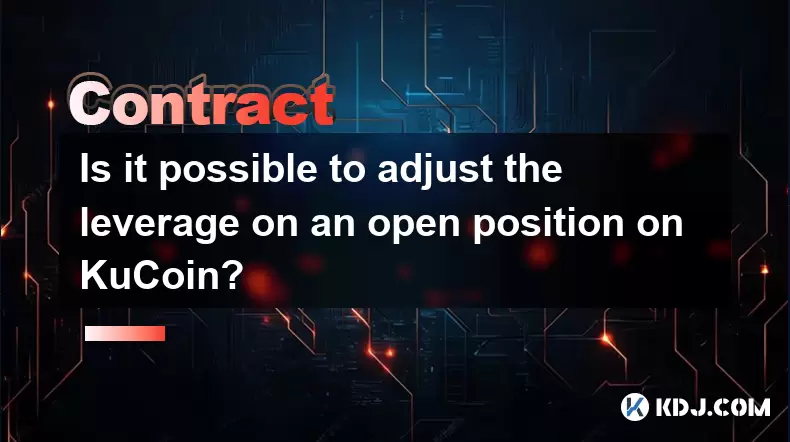
Is it possible to adjust the leverage on an open position on KuCoin?
Aug 09,2025 at 08:21pm
Understanding Leverage in KuCoin Futures TradingLeverage in KuCoin Futures allows traders to amplify their exposure to price movements by borrowing fu...
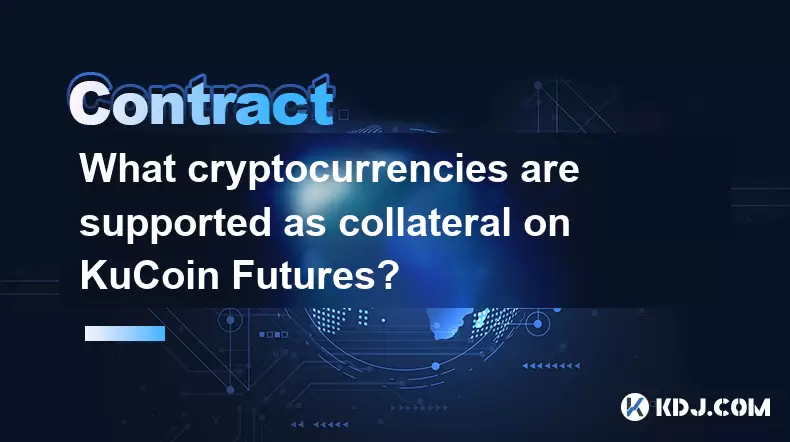
What cryptocurrencies are supported as collateral on KuCoin Futures?
Aug 11,2025 at 04:21am
Overview of KuCoin Futures and Collateral MechanismKuCoin Futures is a derivatives trading platform that allows users to trade perpetual and delivery ...
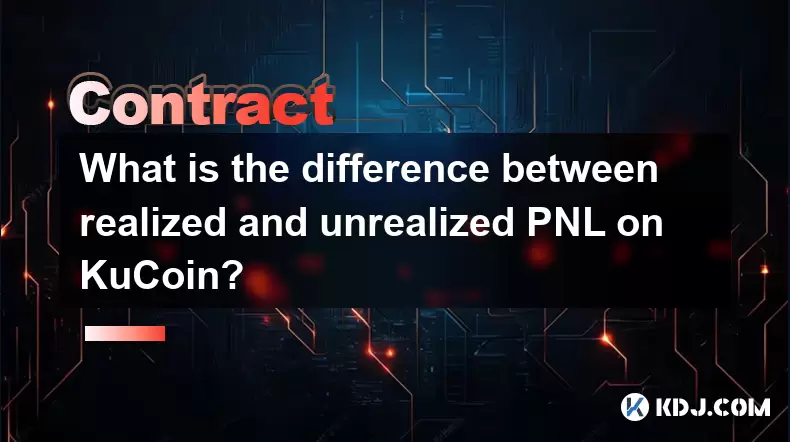
What is the difference between realized and unrealized PNL on KuCoin?
Aug 09,2025 at 01:49am
Understanding Realized and Unrealized PNL on KuCoinWhen trading on KuCoin, especially in futures and perpetual contracts, understanding the distinctio...

What different order types are available to use on KuCoin Futures?
Aug 13,2025 at 11:35am
Understanding Order Types on KuCoin FuturesKuCoin Futures offers a comprehensive range of order types to accommodate different trading strategies and ...
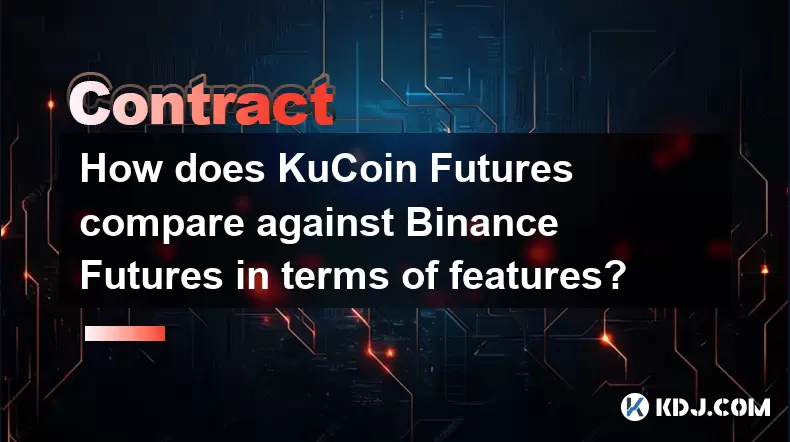
How does KuCoin Futures compare against Binance Futures in terms of features?
Aug 09,2025 at 03:22am
Trading Interface and User ExperienceThe trading interface is a critical component when comparing KuCoin Futures and Binance Futures, as it directly i...

How can I manage risk when applying high leverage on KuCoin?
Aug 13,2025 at 11:35am
Understanding High Leverage and Its Implications on KuCoinHigh leverage in cryptocurrency trading allows users to control larger positions with a rela...

Is it possible to adjust the leverage on an open position on KuCoin?
Aug 09,2025 at 08:21pm
Understanding Leverage in KuCoin Futures TradingLeverage in KuCoin Futures allows traders to amplify their exposure to price movements by borrowing fu...

What cryptocurrencies are supported as collateral on KuCoin Futures?
Aug 11,2025 at 04:21am
Overview of KuCoin Futures and Collateral MechanismKuCoin Futures is a derivatives trading platform that allows users to trade perpetual and delivery ...

What is the difference between realized and unrealized PNL on KuCoin?
Aug 09,2025 at 01:49am
Understanding Realized and Unrealized PNL on KuCoinWhen trading on KuCoin, especially in futures and perpetual contracts, understanding the distinctio...

What different order types are available to use on KuCoin Futures?
Aug 13,2025 at 11:35am
Understanding Order Types on KuCoin FuturesKuCoin Futures offers a comprehensive range of order types to accommodate different trading strategies and ...

How does KuCoin Futures compare against Binance Futures in terms of features?
Aug 09,2025 at 03:22am
Trading Interface and User ExperienceThe trading interface is a critical component when comparing KuCoin Futures and Binance Futures, as it directly i...

How can I manage risk when applying high leverage on KuCoin?
Aug 13,2025 at 11:35am
Understanding High Leverage and Its Implications on KuCoinHigh leverage in cryptocurrency trading allows users to control larger positions with a rela...
See all articles

























































































